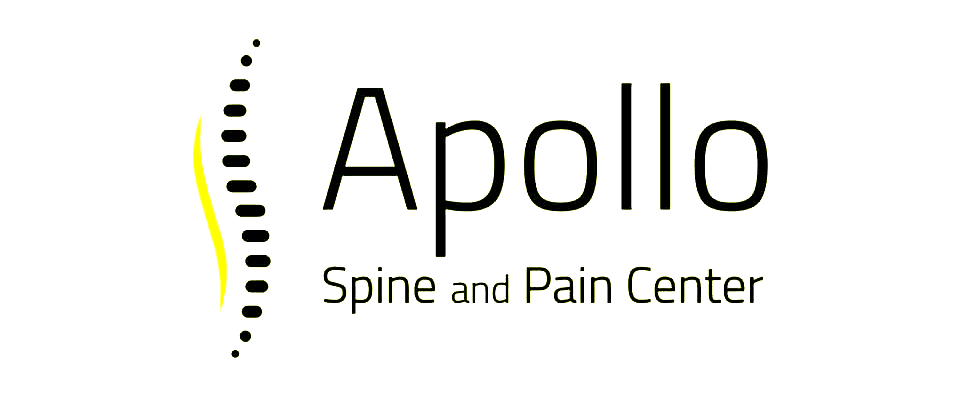Coping with Chronic Pain: Psychological Techniques to Empower Your Pain Management Journey
Chronic pain not only impacts the body but can also profoundly affect the mind, leading to feelings of frustration, anxiety, and even depression. As a chronic pain sufferer, it's essential to recognize the interconnectedness of your physical and emotional wellbeing and learn techniques for coping with the mental aspects of pain. Integrating psychological coping strategies with your pain management plan can help enhance the overall effectiveness of your treatment, ultimately leading to an improved quality of life.
At Apollo Spine and Pain Center, we understand that the road to pain relief can also be an emotional journey. Our team is dedicated to helping you pursue a comprehensive approach to pain management that includes addressing the psychological aspects of chronic pain. In this article, we will explore a variety of psychological techniques that can help you cope with chronic pain, build resilience, and reinforce the mind-body connection.
The techniques discussed in this article range from mindfulness meditation and cognitive-behavioral therapy to biofeedback and guided imagery. Each of these approaches can potentially contribute to your ability to cope with pain, reduce stress and anxiety, and improve your overall wellbeing.
Mindfulness Meditation for Pain Management
Mindfulness meditation is a practice that involves focusing your attention on the present moment, allowing you to develop a greater awareness of your thoughts, emotions, and physical sensations, including pain. By cultivating mindfulness, you can learn to observe your pain without judgment and reduce stress and anxiety often associated with chronic pain.
Several studies have demonstrated the potential benefits of mindfulness meditation in chronic pain management, including reduced pain intensity, improved emotional well-being, and increased quality of life. To practice mindfulness meditation, find a quiet space, sit comfortably, and focus on your breath or another point of focus, such as a mantra or body sensation. Whenever your mind wanders, gently bring your attention back to the present moment.
Cognitive-Behavioral Therapy for Chronic Pain
Cognitive-behavioral therapy (CBT) is a form of psychotherapy focused on identifying and changing negative thought patterns and behaviors that can contribute to chronic pain. By examining the relationship between thoughts, emotions, and physical sensations, CBT encourages the development of healthier coping mechanisms for dealing with pain.
CBT for chronic pain typically involves identifying maladaptive thought patterns, such as catastrophizing or all-or-nothing thinking, and replacing them with more adaptive beliefs and behaviors. Techniques used in CBT may include relaxation training, goal-setting, problem-solving, and assertiveness training. In addition to individual therapy, group CBT sessions can offer social support and shared experiences with others living with chronic pain.
Biofeedback: Harnessing the Power of the Mind-Body Connection
Biofeedback is a technique that involves using electronic devices to measure physiological responses, such as heart rate, muscle tension, or skin temperature, and provide real-time feedback about these responses as they occur. By monitoring these physiological signals, you can learn to recognize and control certain reactions that could be contributing to your chronic pain.
Some biofeedback modalities commonly used in pain management include electromyography (EMG), which measures muscle tension, and thermal biofeedback, which monitors skin temperature. By learning to control these physiological responses, you may be able to reduce muscle tension, improve blood flow, and alleviate pain. Biofeedback is often used in conjunction with other psychological techniques and pain management strategies to provide a comprehensive, multi-faceted approach to chronic pain treatment.
Guided Imagery: Visualizing Relief and Relaxation
Guided imagery is a relaxation technique that involves visualizing peaceful, calming images or scenarios as a means of reducing stress and promoting relaxation in the mind and body. In the context of chronic pain management, guided imagery can help reduce muscle tension, promote relaxation, and improve mood.
To practice guided imagery, find a comfortable position, close your eyes, and focus on your breath. Take deep, slow breaths, and as you exhale, imagine yourself in a peaceful, relaxing environment. Focus on all the sensory details of this environment, such as the sights, sounds, smells, and sensations. By immersing yourself in this imagined scenario, you encourage relaxation and provide a mental escape from pain.
Guided imagery can be particularly helpful for individuals with chronic pain who may have difficulty relaxing or falling asleep due to their discomfort. With regular practice, guided imagery can become an effective tool in your psychological pain management toolbox.
Empowering Your Pain Management Journey Through Psychological Coping Strategies
Chronic pain can impact not just your body but also your emotional well-being. By incorporating psychological coping techniques into your pain management plan, you can foster a more comprehensive approach to pain relief, harnessing the power of the mind-body connection.
Explore mindfulness meditation, cognitive-behavioral therapy, biofeedback, and guided imagery to discover which techniques resonate with you and complement your existing pain management strategy. By prioritizing both physical and emotional aspects of pain relief, you empower yourself to take control of your pain and improve your overall quality of life.
Looking for comprehensive
pain management solutions that can help you achieve long-term relief and improve your quality of life? Look no further than Apollo Spine and Pain Center! Our team of experts is here to support you on every step of your pain management journey, with personalized plans that integrate cutting-edge treatments, therapies, and psychological coping strategies. Contact us today and unlock the potential of a well-rounded approach to pain management with Apollo Spine and Pain Center in Cumming, GA.












